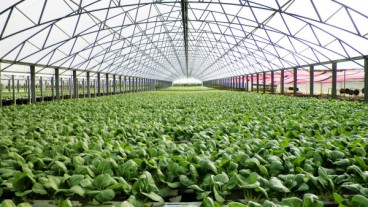Bridging the Future: HS2’s Interchange Station Reaches New Milestone


Want to read more like this story?

Curzon Street Station: A 21st Century Icon for the UK's High-Speed Railway Network
Sep, 18, 2024 | NewsThe high-speed railway development in the UK takes a significant step forward with the unveiling of...

Transforming Liverpool: Stunning New Images of £100m Liverpool Baltic Station Plan
May, 23, 2024 | NewsLiverpool City Region is set to undergo a major transformation with the unveiling of the GBP 100 mi...

Connecting Communities and Nature: HS2’s Innovative Green Bridge at Turweston
Nov, 25, 2024 | NewsThe HS2 project has reached an exciting milestone with the construction of a 5,940 sq/m green bridg...

HS2’s Stoneleigh Road Green Bridge Nears Completion, Blending Infrastructure with Nature
Feb, 14, 2025 | NewsThe HS2 project has reached another milestone with the completion of Stoneleigh Road Green Bridge,...

Bellingham Bridge: A New Landmark for Birmingham's Skyline
Jul, 15, 2024 | NewsBirmingham is set to witness a significant transformation in its skyline with the construction of t...

Innovative Engineering Brings Aston Church Road Bridge to Its Final Position
Aug, 16, 2024 | NewsIn a significant achievement for Birmingham's infrastructure, a new 84-metre composite bridge was s...

Liverpool Street Station’s Evolution: Enhanced Access, More Space, Timeless Charm
Nov, 13, 2024 | NewsNetwork Rail Property has announced ambitious redevelopment plans for London’s Liverpool Street Sta...

Britain's Longest Rail Bridge: A Historic HS2 Milestone
Sep, 05, 2024 | NewsIn a major engineering achievement, the UK’s High Speed 2 (HS2) project has set a new record with t...

Digging Deep: Toronto’s Ontario Line Launch Shaft Construction Begins
Nov, 28, 2024 | NewsExcavation work is officially underway for the Ontario Line’s TBM (Tunnel Boring Machine) launch sh...
Trending

Vertical gardens in Mexico City to combat pollution

Characteristics of Load Bearing Masonry Construction

Taipei 101’s impressive tuned mass damper

Dutch greenhouses have revolutionized modern farming

The Line at Neom faces feasibility reassessment while construction continues

The Line at Neom faces feasibility reassessment while construction continues

King Salman Gate unveiled adjacent to Mecca’s Grand Mosque

